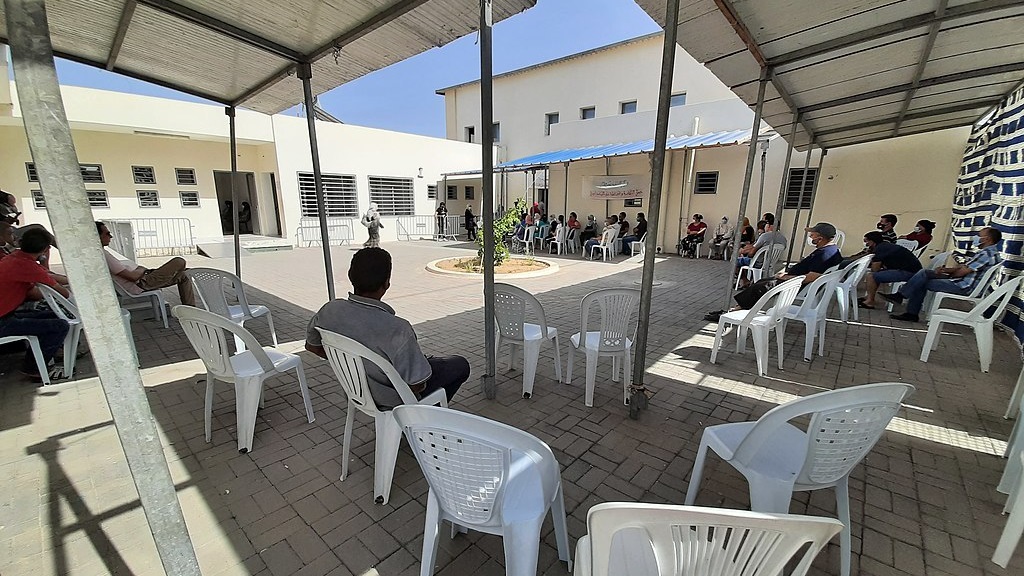COVID-19 pandemic coincided with deep political and socio-economic crises following the general 2019 presidential and parliamentary elections in Tunisia. The parliamentary landscape did not allow composition of a stable government for a long time, leading to frequent changes of ministers of health during the various stages of pandemic management. The political crisis has intensified with the dismissal of the prime minister and the suspension of parliament by president Kais Saied in July.
Several progressive parties and civil society organizations rallied against deterioration of living conditions in this period, protesting corruption and clientelism, and deteriorating public health capacities due to neoliberal policies and issues of political governance. Right to health organizations in particular have taken part in several national and regional meetings to support the health sector during this time. Popular demonstrations were faced with unprecedented repression and limitation of political freedom. Several waves of the pandemic led to an increasing number of cases and deaths, and the staggered response undermined the capacities of both public and private health care institutions to better respond to population health needs.
Making better use of Primary Health Care
Despite the availability of capable health professionals, and a well-organized primary care setting, at first, the strategy to manage the pandemic was based on the model used in some European countries focusing on tertiary care facilities and the use of information technology. Following the pressure by civil society initiatives, the strategy expanded to the primary care network, involving first-line health professionals and harnessing social and political mobilizations.
Despite difficulties faced by Tunisia for the acquisition of vaccines at the beginning, including financial constraints and inappropriate planning, commendable efforts were recently made to speed up the process of immunization targeting 50% of population by end October. However, the vaccination campaign has suffered issues related to lack of motivation to register at Evax platform, misinformation and fake news about vaccines, technical problems related to the platform itself, and mainly the limited involvement of front-line health workers.
The Tunisian Association for Defending the Right to Health (ADRH) has set up an observatory function to assess immunization campaigns against COVID-19. Dr Moncef Bel Haj Yahya from the ADRH has analyzed official immunization data in order to explain disparities between and inside governorates in relation to vaccination coverage. ADRH’s findings support the efforts of civil society in Tunisia to call for a better inclusion of PHC facilities in the campaign, and for it to be better decentralized, according to the different governorates’ capacities.
The state of things
As of September 20, only 2.35 million people aged 40 years and more (vulnerable and at-risk groups) were fully immunized, out of 4.6 million. 3.106 million had received one shot, while about 750,000 were awaiting a second shot, and over 1.52 million had not received any shots.
There are however notable disparities among governorates in relation to coverage of population aged 40+ by vaccines. 11 governorates had more than 70% coverage, 8 governorates had 60-69% coverage, and 5 governorates had less than 60% coverage.
It seems that social and economic gradients between various regions, and factors such as local and regional governance and leadership, staff motivation and involvement of civil society are related to the existing differences. However, as the data is not sufficiently disaggregated, it is difficult to provide a clearer analysis of the differences.
In order to avoid regional disparities in access to immunization against Covid-19, there is significant room for the improvement of the vaccination campaign. Most importantly, there is a need to use all primary health care facilities for the immunization activities. This would allow the decentralization of immunization activities, make it easier to convince people to register at the Evax platform, and simplify the organization of extensive vaccination days for governorates lagging behind in terms of immunization coverage.
But there is also a pressing need to boost social mobilization in favor of vaccination services and safeguarding public health care. As in many other countries inside and outside the region, the COVID-19 pandemic has shown the deficiencies in health governance leading to limited investment in public health, weak health security, limited global solidarity and to unacceptable inequities in access to health technologies. The pandemic offers the opportunity for civil society in Tunisia to push for investments in equitable, primary health care-based health systems and to resist neoliberal policies.
Read more articles from the latest edition of the People’s Health Dispatch and subscribe to the newsletter here.





